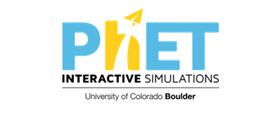GCSE 3 Energy and Energy Changes
The teaching of energy has undergone some changes in the most recent curriculum review (First examination 2017) and so it is possible that some of the existing resources that you have in school and that are widely available may not exactly match the new advice and guidance particularly with respect to language and representations . The word ‘energy’ is in common usage with many and varied meanings, furthermore it has uses in chemistry and biology that overlap but do not match exactly how it is used in physics. As such, language and terminology is a key issue of concern here.
In physics, energy is an abstract, mathematical idea that is hard to define or explain clearly. This presents problems for teachers as well as students.
Some of the key changes in the revised National Curriculum can be summarised as there being a move towards:
- Consideration of energy as a quantitative tool rather than energy being a substance
- Encouraging students to provide explanations that explore processes rather than rely on energy
- When analysing energy changes, considering the start and end points rather than the process of what is happening in between
- Noting that energy can be calculated in quantifiable terms
- Considering heating (as a process) rather than ‘heat’ as a substance
The first few resources point towards some discussions and advice about how one might approach the teaching of energy followed by some more general ones.
Whilst this list provides a source of information and ideas for experimental work, it is important to note that recommendations can date very quickly. Do NOT follow suggestions which conflict with current advice from CLEAPSS, SSERC or recent safety guides. eLibrary users are responsible for ensuring that any activity, including practical work, which they carry out is consistent with current regulations related to Health and Safety and that they carry an appropriate risk assessment. Further information is provided in our Health and Safety guidance.
- ALL
- Interactive resource
- External link
Interactive resource
Energy Skate Park Basics
One of the clearest ways to visualise the energy changes in a dynamic system (make sure you turn the energy graphs on with the buttons on the right). This simulation allows students to change heights and slopes on a skate ramp, and to then see how both gravitational and kinetic energy vary graphically. Use it with your students as a whole class activity. I'd suggest that you start by turning friction off and just looking at the gravitational and kinetic but after that you can turn friction on, change gravity and have lots of fun.
External link
Classroom Physics (March 2017)
The first page of the Institute of Physics' Classroom Physics newsletter has a overview of the issues around the teaching of energy as well as links to further support and guidance.
Climbing the stairs
You can use this practical activity from the IOP with the whole class in either a group or individual exercise where they calculate the change in gravitational potential energy for climbing a stair.
How Many Lightbulbs?
David MacKay presents a short video on energy usage where he tries to provide a common currency to allow meaningful comparisons between sources of energy consumption (and provision).
Without the Hot AIr
A wide ranging and comprehensive book by David MacKay (see above) that aims to look at energy production and consumption in the UK from a physics perspective trying not to be drawn in to political or other concerns. He develops a common unit to compare all production and consumption of energy and then explores what might and might not be possible in the UK. For example, if we built all the possible off-shore wind farms around the UK coast line how much of the energy needs of the country would it provide? I really like the gadgets chapter that tries to provide an honest look at how much the stuff we use every day actually consumes.
The book is long but well worthwhile the time investment but for those pressed for time, a 10 page synopsis is available here
The book is free to download as a whole or by chapter.


